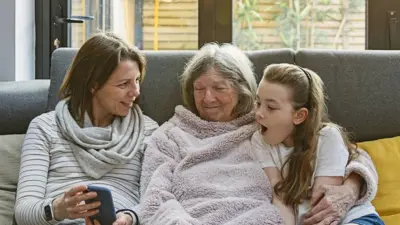We've updated our Privacy and Cookies Policy
We've made some important changes to our Privacy and Cookies Policy and we want you to know what this means for you and your data.
How to survive without public toilets
Image source, Getty Images
Hundreds of council-run public toilets have closed - so what alternatives do people have when they feel the need to go, asks Justin Parkinson.
Councils don't have to provide toilets. Under the 1976 Local Government Act, those in England and Wales simply have the power to install them in places of entertainment and other "relevant places". It's much the same across the UK, according to the British Toilet Association.
A freedom-of-information request by the 91ČČąŹ has revealed that at least 1,782 public toilets have closed in the last decade, with some councils now offering none.
There's nothing illegal about this, but when the need to go can become overwhelming, is it against the law to pee outdoors? The College of Policing says the 1986 Public Order Act means people could be prosecuted if doing so is likely to "cause harassment, alarm or distress" - such as by indecent exposure.
Urinating in a place where you will not be seen, in a shop doorway, say, or behind the bushes in a park, would be covered by local authority bylaws. Newcastle, one of the places offering no council-run public toilets, has , stating: "No person shall urinate or defecate in any public place." The maximum penalty is a ÂŁ500 fine.
Then there's the alternative of popping into a shop, pub or cafe, something many people find embarrassing. Such private businesses have no legal compulsion to provide free toilets for non-customers, says Raymond Martin, chief executive of the British Toilet Association.
Image source, LEON NEAL
But some councils have agreements - known as Community Toilet Scheme - with businesses who offer free use of toilets to non-customers displaying stickers in their windows. "In some places they go further and put up signs outside," says Martin. "Some businesses realise that having a toilet gets more people in, increasing footfall and takings."
shows where people can go to the loo without fear of embarrassment in locations across the UK and Ireland. It also states whether customers are charged for use.
Another choice is for people to hold things in for as long as possible while out.
People suffering from urinary incontinence can undergo . This involves not peeing unless the bladder is full, rather than misreading signals which cause people to go earlier. The NHS gives such advice for medical reasons, rather than for those who just feel the need while out and about.
"The advice is to drink sensibly if you are going out, trying to avoid drinks that will irritate the bladder, such as those containing alcohol or caffeine," says Louise de Winter, chief executive of the Urology Foundation. But this is only advisable in the short term, as clearing the bladder is necessary to reduce the risk of infection, she adds, and this involves keeping up fluid intake.
There are moves in Wales to compel councils to create a strategy ensuring public toilet provision across the area. "It's something that we could do with across the UK," says Martin. "Having decent public toilets is good for public health, business and the prevention of disease. It's civilised."
Follow Justin Parkinson on Twitter
Subscribe to the 91ČČąŹ News Magazine's email newsletter to get articles sent to your inbox.
Top Stories
More to explore
Most read
Content is not available








